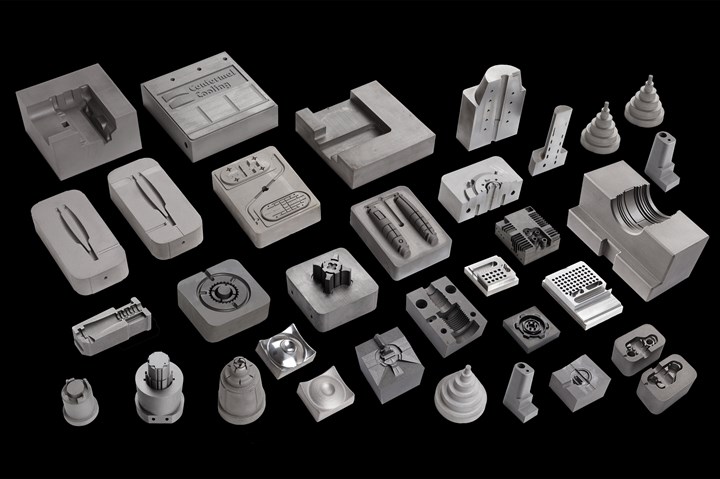Precision Metal 3D Printing Technology for Mold Manufacture
Mantle’s P-200 3D printer, combined with the TruShape process, achieves high-performance part production with shorter lead times and lower costs.
Mantle’s precision metal 3D printing technology produces precision tooling components — such as cavities, cores and sprue bushings — that reduce the time and cost of making production-grade tools, molds and dies. Mantle’s technology combines additive 3D printing of metal pastes with subtractive machining to meet the requirements of the tooling industry, including accuracy, surface finish and fine features.
The company has developed two tool steel materials, P20 and H13, and has demonstrated that these materials perform in a manner comparable to traditional tool steels. According to the company, these tools have been produced with shorter lead times and lower costs than tools made traditionally.
One way in which Mantle is achieving this is through its P-200 printer, a hybrid system built on a trusted CNC platform. It integrates 3D printing of Mantle’s metal pastes with precision machining to produce parts with the accuracy and surface finish required for tooling. The P-200 printer has a build volume of 200 × 200 × 150 mm.
Complementing the 3D printer is Mantle’s TrueShape process, which can reportedly deliver tools at a fraction of the time and cost of traditional manufacturing while simultaneously unlocking new design features like conformal cooling.
A customer, a global medical device manufacturer, sought a solution to significantly reduce the time to prototype parts made with high-temperature plastic. Using Mantle’s TrueShape technology and P2X (P20 comparable) material, cavity and core tool steel mold inserts were 3D printed in just over 2.5 days. Then, after another 5.5 days of mold and insert preparation, the tool was ready for molding.
Compared to a fabrication time of seven weeks using traditional manufacturing, Mantle’s process resulted in more than 80% of time savings. The printed inserts demonstrated equivalent molding performance to conventionally manufactured inserts. Additionally, the molding surfaces had high tolerance and a smooth surface finish, so no additional work to the mold surfaces was required before use.
Related Content
-
Technology Roundup: Additive Manufacturing, Mold Materials
Upgrade your manufacturing process or tool steel choices with new/improved additive manufacturing and mold material innovations from AddUp Inc., Mantle, Next Chapter Manufacturing, Edro and more.
-
A 3D Printing Retrospective
A personal review of the evolution of 3D printing in moldmaking throughout the past 25 years.
-
Plastic Prototypes Using Silicone Rubber Molds
How-to, step-by-step instructions that take you from making the master pattern to making the mold and casting the plastic parts.









_300x250 3.png;maxWidth=300;quality=90)



.png;maxWidth=300;quality=90)
.jpg;maxWidth=300;quality=90)


